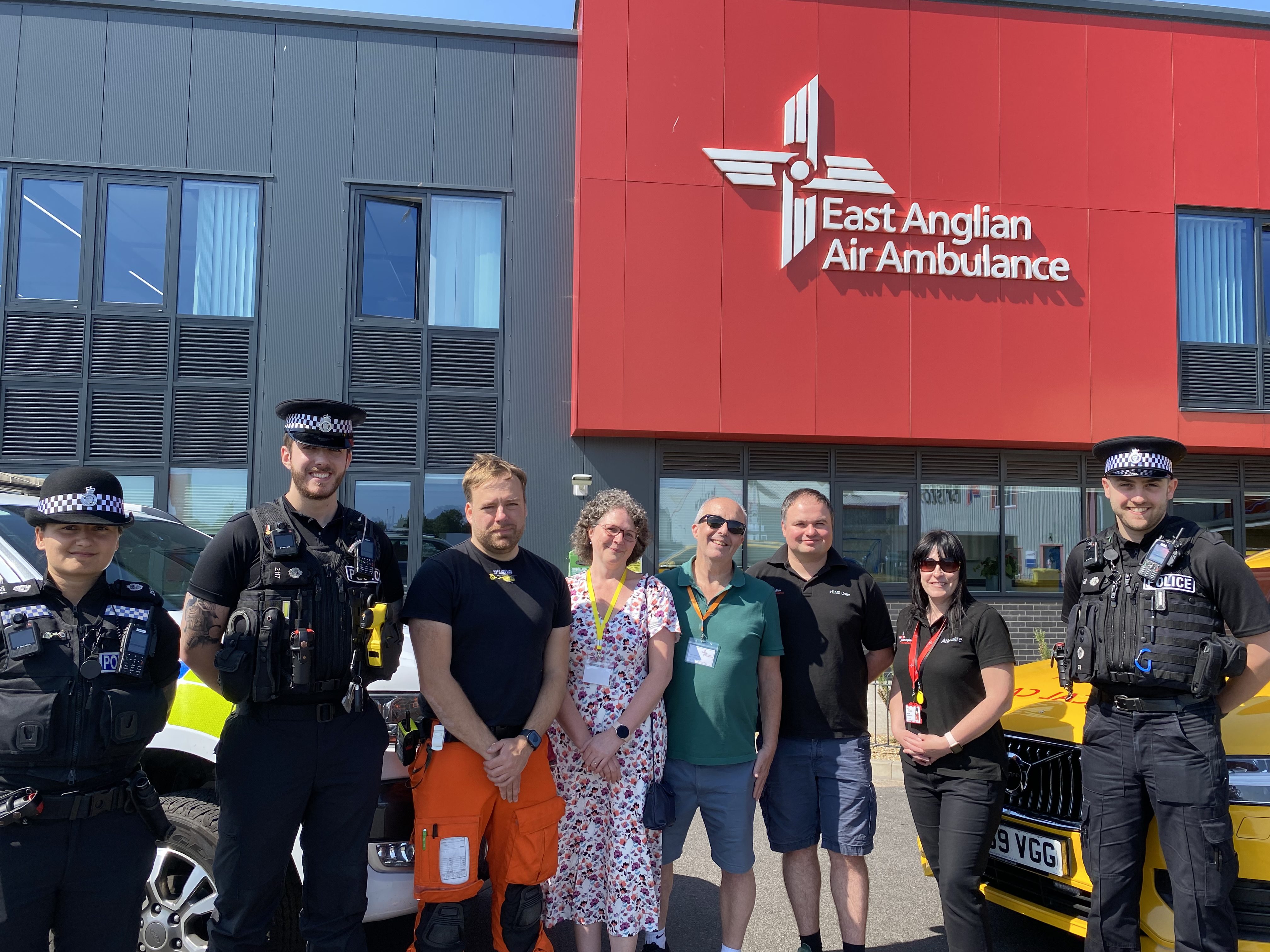Julia and David's Story
Life-saving CPR
In April 2023, Julia and David Parker visited Norfolk. They were looking to move to the county following Julia’s retirement as a GP and were spending some time viewing houses in the hope of finding their forever home when David suffered a cardiac arrest during the night.
Julia and David have kindly shared their account of events to encourage others to learn life-saving CPR skills.
David
“I had felt a little unwell during the day after viewing four potential new homes. I had a stomach ache, headache and some shoulder pain. I took some paracetamol, and we returned to the hotel for some food and rest. The last thing I remember is being unable to sleep and picking up my iPad to play some games. This is where Julia will have to pick up the story as I have no memory of what happened next.”


I now want to volunteer with EAAA, learn CPR and how to use a defibrillator myself, and help get the message out to other people.

— David Parker
“I fell asleep quickly but woke up at around 2am to a grunting noise from David. I looked over, and he was sitting up in bed but slumped to one side. Then there was silence, and it was obvious to me that something very dramatic and important had happened.
I have first-aid training from my medical job. David was completely unresponsive, and there was no output. I knew I needed to start immediate CPR. I pulled David flat onto the bed and called 999 with my mobile on speakerphone while continuing CPR.
The 999 services supported me via the phone as I got David onto the floor. They also helped me to identify where we were. Because we were staying at a hotel and we didn’t know the area, I wasn’t clear on my location. I looked around the room and found a menu with the name and address of the hotel.
I made the 999 call at 2:08am and continued CPR until first responders arrived. I thought they were the ambulance crew, but they were actually police officers and, importantly, they were carrying a defibrillator. They delivered a shock at 2:28am after I had performed 20 minutes of CPR. There was then a flurry of activity with paramedics and crew from EAAA. A member of hotel staff had helped me with the CPR and gave the emergency services access to the building. Once they arrived, I took a back seat as delivering 20 minutes of CPR was exhausting.”
David
“Without CPR, I wouldn’t be here today. I feel very fortunate that Julia understood and knew what to do. The help of the police, the ambulance service and the crew from East Anglian Air Ambulance was so important that night. I now want to volunteer with EAAA, learn CPR and how to use a defibrillator myself, and help get the message out to other people.”
Julia
“The treatment David had in the acute phases was amazing, as was the way we were both looked after on the night. Of course, David was the patient, but I was also very well looked after and kept informed. We had a lot of communication from the team at EAAA, including phone calls, emails and face-to-face support. Even though the outcome was good, there are still some aspects which are traumatic to remember, and we have both been helped a lot by the support provided by the EAAA Aftercare service. This has meant a lot to us.
Knowing what to do in terms of CPR delivery helped me. It’s obviously a very upsetting time when somebody you love is unwell in front of you. Being able to assist David effectively and in a timely manner was critical, but everyone played a role in what was a positive outcome for us – but it could have been so very different if it hadn’t been done immediately.”
Every year approximately 12,000 people suffer a cardiac arrest in the East of England. Only about 66% of those who suffer an out-of-hospital cardiac arrest receive any form of bystander cardiopulmonary resuscitation (CPR) before the arrival of the ambulance service, and less than 20% have a defibrillator (AED) deployed before emergency services arrive.
The out-of-hospital cardiac arrest survival rate in the UK is only around 8%; however, if a defibrillator is used alongside effective CPR within the first 3-5 minutes, the chances of survival can increase to between 40% – 70%.
We are committed to training as many people as possible in CPR, and how to use a defibrillator so together we can save more lives. Learn more about our FREE Community CPR Training.